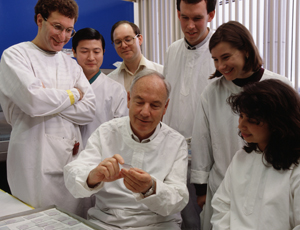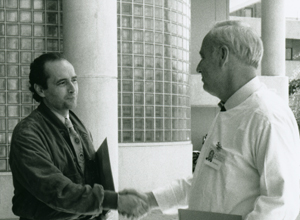In the early 1960s Professor Metcalf speculated that there must be a biological mechanism – one or more hormones – that controlled white blood cell production.
These white blood cells become severely depleted in cancer patients undergoing chemotherapy, leaving them vulnerable to serious and sometimes fatal infections.

Over a period of fifteen years Metcalf and his colleagues identified and purified four hormones that regulate blood cell production. These were dubbed ‘colony stimulating factors’, or CSFs, because they stimulated the production of white blood cells.
By the late 1980s gene cloning enabled mass production of CSFs, and they were rolled out to clinics worldwide. To date, Professor Metcalf’s discovery has benefited more than 20 million cancer patients worldwide.
CSFs also revolutionised transplant medicine, leading to new techniques for performing bone marrow transplants for patients with blood diseases such as leukaemia.
Although officially retiring in1996, Professor Metcalf continued his research at the Institute for a further 18 years, studying the regulation of normal and leukaemic blood cells. In his last months, with poor health finally preventing him from coming into the Institute, he requested a microscope be set up at home so he could continue working as long as possible.




